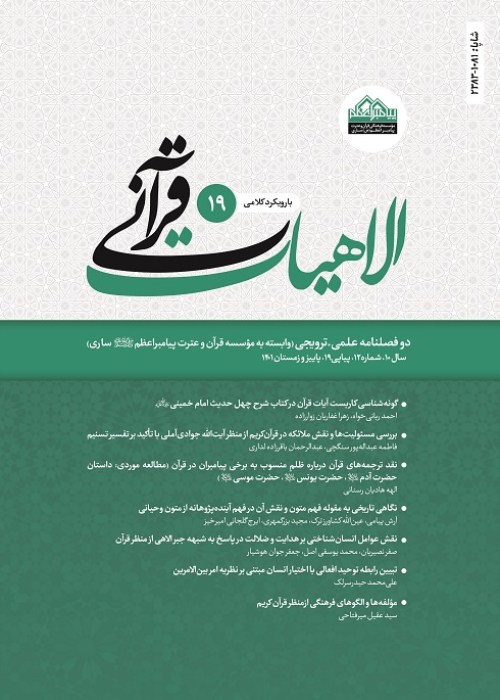A historical Approach to subject of the text understanding and its role in future - oriented understanding of the revelation texts
Future -oriented understanding of Holy Quran or any other divine text can be defined understanding of it, outside the context and time of its revelation. This understanding and how it is formed inside a person is very important. Understanding is mostly defined within an extra-religious approach and is synonymous with hermeneutics, while interpretation is mostly done within intra-religious approach and proceeds based on theological presuppositions. The purpose of this article is to investigate the role of these two approaches as how they can affect understanding of revelation texts. The main question of the research is: What is the role of different perspectives of understanding the texts on the understanding of the revealed texts, including the Holy Quran?
The research method is content analysis of texts related to the research problem. First, the schools of understanding of texts have been examined in three stages of ancient hermeneutics, middle hermeneutics and late hermeneutics. Although the origins and concerns of various schools of thought have been originated from Bible, we can find traces of similarities between some futures –oriented understandings of the Holy Qur'an with the ancient hermeneutic school, in which the text still has considerable weight. In middle hermeneutics and with the formation of the Renaissance and the changes that have occurred in the perception of human, this is human as he to derivate what the author intended in his text.
In philosophical hermeneutics, people enter into a conversation with the text based on their concerns, presuppositions, and preconceptions. Since the existence of human beings can change during their lifetime, in practice it should be said that it is impossible to imagine a future-oriented understanding from the text of revelation. Or that it should be defined in the present tense, which is different from person to person and even during that time for that person. Therefore, the future-oriented understanding of the Holy Quran will be a function of the time and conditions in which man is located, and it seems that this way of understanding is not compatible with the immortality of the teachings of the Quran.
- حق عضویت دریافتی صرف حمایت از نشریات عضو و نگهداری، تکمیل و توسعه مگیران میشود.
- پرداخت حق اشتراک و دانلود مقالات اجازه بازنشر آن در سایر رسانههای چاپی و دیجیتال را به کاربر نمیدهد.


